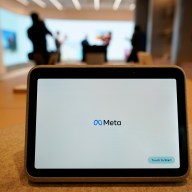Managing money off the grid may sound like financial freedom, but the reality boils down to something grimmer: fees. Households that don’t use a bank account pay hundreds of dollars a year for alternatives such as money orders, check cashing and prepaid debit cards. For many families, those fees take big bites from often meager paychecks. A new NerdWallet study of federal data shows that low-income households are most likely to forgo a financial institution and rack up fees.
The unbanked rate is high among low-income populations. Nationally, 7.7% of households didn’t have a bank account in 2013, according to the Federal Deposit Insurance Corporation National Survey of Unbanked and Underbanked Households. Among households with incomes of less than $30,000, nearly 20% were unbanked. This national correlation translates to the state level. Below are the 10 states (including Washington, D.C.) with the highest percentage of unbanked households, according to the 2013 FDIC report:
1. Mississippi, 14.5%,
2. Louisiana, 13.9%
3. Arizona, 12.8%
4. Arkansas, 12.3%
5. District of Columbia, 11.8%
6. West Virginia, 11.0%
7. New Mexico, 10.9%
7. Georgia, 10.9%
7. Oklahoma, 10.9%
10. South Carolina, 10.5%
Seven of these states are among the 10 with the lowest median household incomes, according to the 2013 U.S. Census Bureau’s American Community Survey. Those states are Mississippi, Arkansas, West Virginia, New Mexico, South Carolina, Louisiana and Oklahoma. All but Washington, D.C., had household incomes below the 2013 U.S. median of $52,250. The 2013 average post-tax income of unbanked households in the U.S. was $17,359 and was lowest in Montana at $11,963, according to the FDIC report. The cost of being unbanked hits low-income households hard. The costs of money orders, check cashing and prepaid debit cards add up. NerdWallet found that the average unbanked household without a prepaid debit card pays an annual average of $196.50 in fees, while unbanked households that use a prepaid debit card without direct deposit pay an annual average of $488.89 in fees. (Our full study includes a detailed methodology.) In Montana, where unbanked households earn the least, that low estimate ($196.50) is 1.64% of the average unbanked household’s income, and the high estimate ($488.89) is 4.09%. For context, the average U.S. household spent about 3.5% of its post-tax income on gas and motor oil in 2015, according to the U.S. Bureau of Labor Statistics. Other costs are harder to calculate. Unbanked families also miss out on savings accounts, secured credit cards and online banking portals, as well as the full range of fraud protection that federally insured banks and credit unions offer. For NerdWallet’s methodology and complete analysis, read the full-length version of States and Metro Areas With the Most Unbanked Households. Sreekar Jasthi is a data analyst at NerdWallet, a personal finance website. Email: sreekar@nerdwallet.com. Laura McMullen is a staff writer at NerdWallet. Email: lmcmullen@nerdwallet.com. Twitter: @lauraemcmullen. The article Low-Income Families Are Most Likely to Skip the Bank Account — and Pay the Price originally appeared on NerdWallet.
















